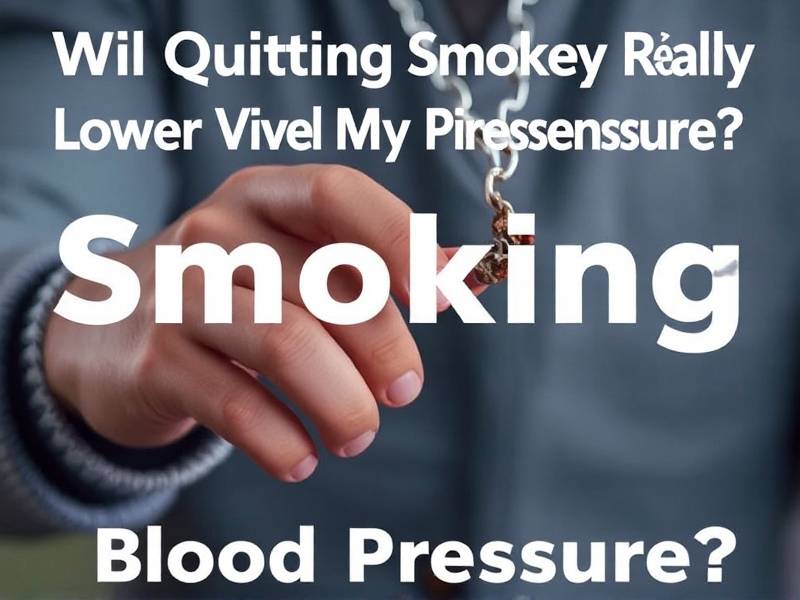Will Quitting Smoking Really Lower My Blood Pressure?
The Impact of Quitting Smoking on Blood Pressure: A Comprehensive Guide
Introduction: Smoking has been widely recognized as a major risk factor for numerous health issues, including high blood pressure. Many individuals contemplating quitting smoking are often curious about the potential benefits it can have on their blood pressure. In this article, we will explore how quitting smoking can potentially lower blood pressure and the mechanisms behind this phenomenon.
Section 1: Understanding Blood Pressure Before diving into the impact of quitting smoking on blood pressure, it is essential to understand what blood pressure is and how it is measured. Blood pressure refers to the force exerted by the blood against the walls of your arteries as your heart pumps it around your body. It is measured in millimeters of mercury (mmHg) and consists of two numbers: systolic (the higher number) and diastolic (the lower number).

Section 2: Smoking and Blood Pressure Numerous studies have shown that smoking can significantly increase blood pressure levels. When you smoke, nicotine causes your heart rate to increase, leading to higher systolic and diastolic pressures. Over time, this sustained elevation in blood pressure can contribute to cardiovascular diseases, including hypertension.
Section 3: The Benefits of Quitting Smoking Now that we understand the relationship between smoking and high blood pressure, let's explore the benefits of quitting smoking for individuals looking to lower their blood pressure.
Subsection 3.1: Immediate Benefits When you quit smoking, your body begins to undergo significant changes almost immediately. Within just a few hours after quitting, your heart rate starts to decrease, which can lead to a slight reduction in blood pressure. Over time, as your body continues to heal from the damage caused by smoking, your blood vessels begin to relax and widen.
Subsection 3.2: Long-Term Benefits Quitting smoking has long-term benefits for individuals with high blood pressure. Studies have shown that within a few weeks after quitting, there is a noticeable reduction in systolic and diastolic pressures. After several years of being smoke-free, former smokers can experience similar blood pressure levels as non-smokers.
Section 4: Additional Health Benefits Aside from lowering blood pressure, quitting smoking offers numerous other health benefits:
- Reduced risk of heart disease and stroke
- Improved lung function
- Decreased risk of developing certain types of cancer
- Better overall quality of life
Conclusion: Quitting smoking can indeed lower your blood pressure over time by reducing the harmful effects of nicotine on your cardiovascular system. While it may take several weeks or months for you to see significant improvements in your blood pressure readings after quitting smoking, the long-term benefits are well worth the effort. If you're considering quitting smoking for better health reasons or any other reason at all, now is an excellent time to start making positive changes towards a healthier lifestyle.
Note: The information provided in this article should not substitute professional medical advice. It is always recommended to consult with healthcare professionals before making any significant changes regarding your health or quit-smoking journey.

